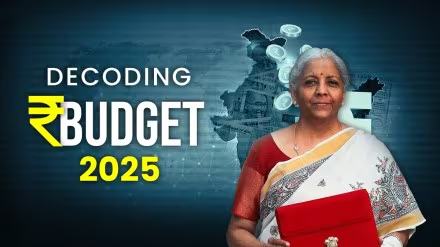Budget 2025-26 proposes key GST amendments for trade facilitation, including ITC distribution, track & trace, and tax liability relief.

Budget 2025-26 Unveils Key GST Amendments for Trade & Warehousing
Finance Minister Smt. Nirmala Sitharaman, in the Union Budget 2025-26, proposed key amendments to the GST framework aimed at streamlining trade facilitation, enhancing compliance, and improving warehousing regulations.
Key GST Reforms Announced:
- Inter-State Input Tax Credit (ITC) Distribution: From April 1, 2025, ITC for inter-state supplies under reverse charge will be distributed via Input Service Distributor (ISD).
- Track & Trace Mechanism: A new clause will define unique identification marking to strengthen supply chain monitoring.
- Supplier Tax Liability Relief: Businesses can reverse input tax credit in cases where a credit note is issued to reduce the supplier’s tax liability.
- Pre-Deposit for Penalty Appeals: A 10% pre-deposit will be mandatory for appeals in cases involving only penalties.
- SEZ & Free Trade Warehousing Zones (FTWZ): Supplies within SEZs and FTWZs before export clearance or Domestic Tariff Area (DTA) transfer will not be considered as supply of goods or services. No tax refunds will apply to such transactions, effective retrospectively from July 1, 2017.
- New Compliance Measures: Stricter return filing conditions will be introduced to enhance tax compliance.
- Expanded Definitions: ‘Local Fund’ and ‘Municipal Fund’ will be defined under ‘local authority’ in the CGST Act.
These amendments, recommended by the GST Council, will take effect after coordination with States. The government aims to simplify tax structures, improve trade efficiency, and reinforce compliance with these reforms.
(SOURCE: PIB Delhi)











